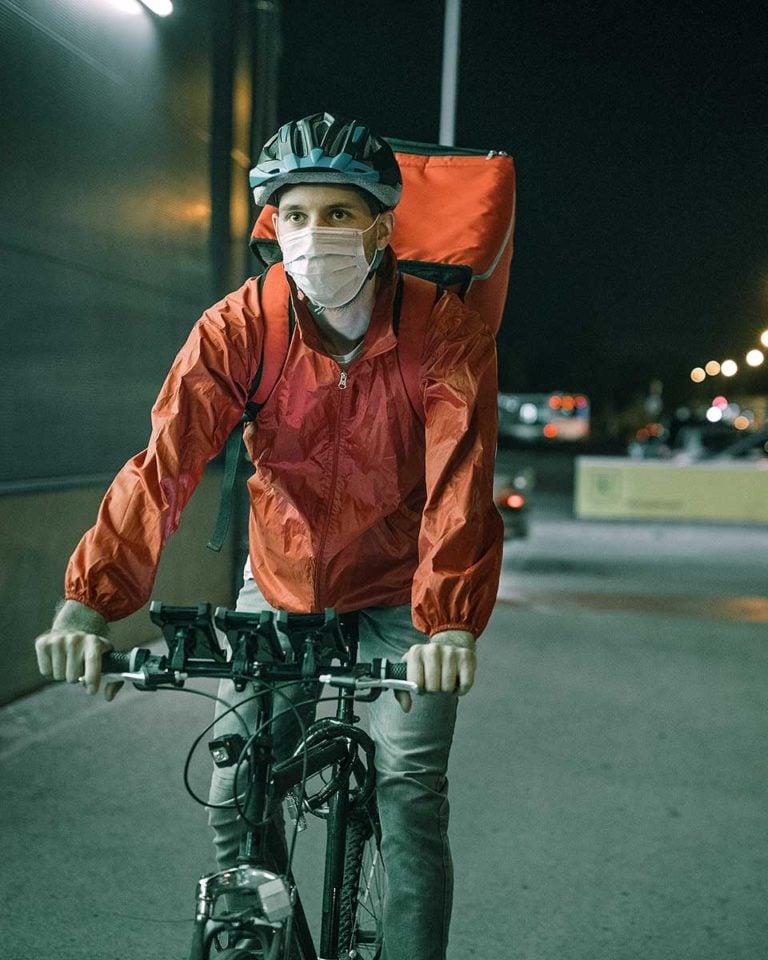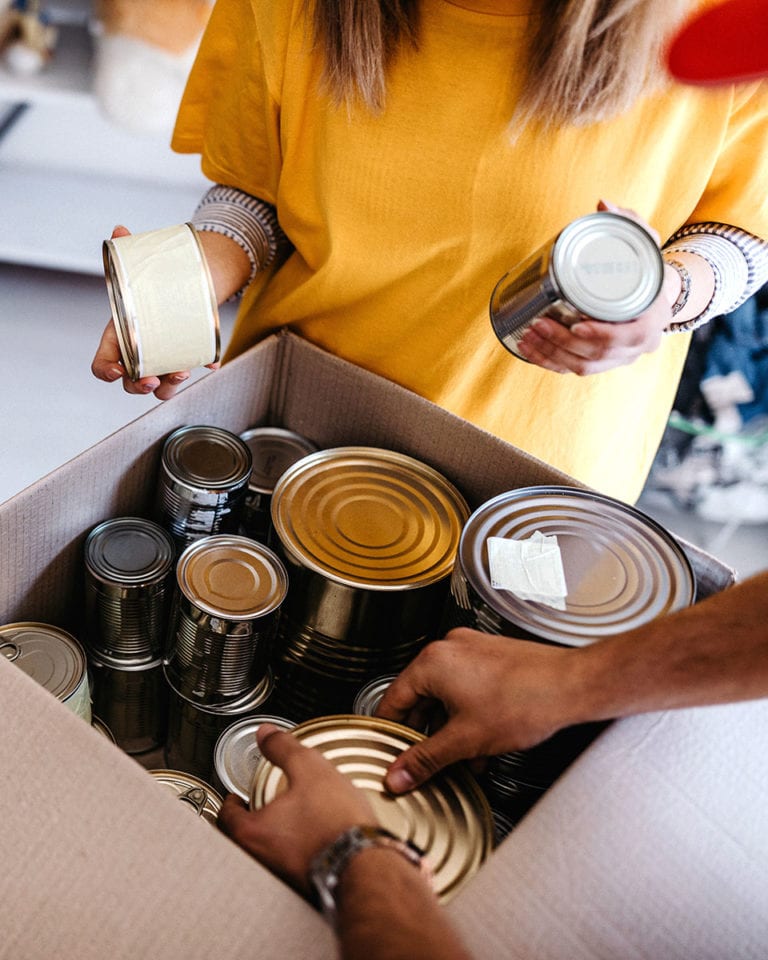The dangers of instant delivery apps: why they’re a new low
Coming to a town near you soon… The latest, rapidly growing phenomenon of apps that promise to deliver your grocery order in 10 minutes. It’s wrong, on so many levels…

I see the ads everywhere. ‘Groceries delivered in 10 minutes,’ they shriek. ‘What you want, when you need it,’ they yell. First, the rise of instant takeaway apps alienated us from our communities by removing the social interaction of a trip to the local takeaway. Now the convenience has extended to groceries. In these ridiculously lazy times, even the simple task of walking to the cornershop has become too much to ask.
New apps are popping up all the time. When once you might have done a small food shop at a local grocer or supermarket, now, with a tap on a screen, city dwellers can choose from thousands of items and have them biked straight to their door from so-called ‘dark shops’ (small local warehouses). Why have we become so willing to let others do our chores for us? Why do we expect everything now, now, now? And whatever happened to delayed gratification?
These new services are made possible by workers earning low wages, pushed against the clock, set the unenviable task of receiving, packing and delivering an order in just 600 seconds. Some apps treat their workforce as disposable, and although there are start-ups that hire riders as proper employees, they’re often short-staffed, adding pressure. There have been strikes by delivery-app workers over the past few years, with one app firing hundreds in Berlin for daring to walk out over pay and conditions.
These new services are made possible by workers earning low wages, pushed against the clock, set the unenviable task of receiving, packing and delivering an order in just 600 seconds.
Relying on an app to satisfy our hunger distances us from thinking about where food comes from. In a time of pending climate catastrophe, when we should be thinking more, not less, about how we source our food, surely this should leave a bad taste in the mouth?
There is an irony, too, of apps claiming to be a way to get ‘healthy’ food to your door. Surely the healthier thing would be to take a brisk walk to the shop?
And then there’s the environmental impact: the paper and packaging used to deliver one or two items; the fossil fuels burned to power the electric bikes used by many of the apps.
There’s another reason to fear these apps, too. In the attention economy, with so many competitors vying for eyes and clicks, our attention spans are dwindling, our brains busier than ever. The instant gratification offered by modern technology encourages the brain’s limbic system to release reward hormones, which feel like pleasure. Meanwhile our prefrontal cortex (responsible for planning, scheduling and higher thought) is neglected. Our brains are becoming addicted to the dopamine hit of on-demand gratification, damaging our ability to focus. Our reliance on apps is literally affecting the wiring of our brains.
So next time you’ve forgotten to buy a pint of milk, how about a quick trip to the shops? You might just find that stepping outdoors, away from screens, does you a world of good. And a smile from a shopkeeper is always cheering, isn’t it?
Are on-demand grocery apps a modern scourge – or do you reckon they’re a good idea? Let us know on Twitter.
Subscribe to our magazine
Food stories, skills and tested recipes, straight to your door... Enjoy 5 issues for just £5 with our special introductory offer.
Subscribe
Unleash your inner chef
Looking for inspiration? Receive the latest recipes with our newsletter

